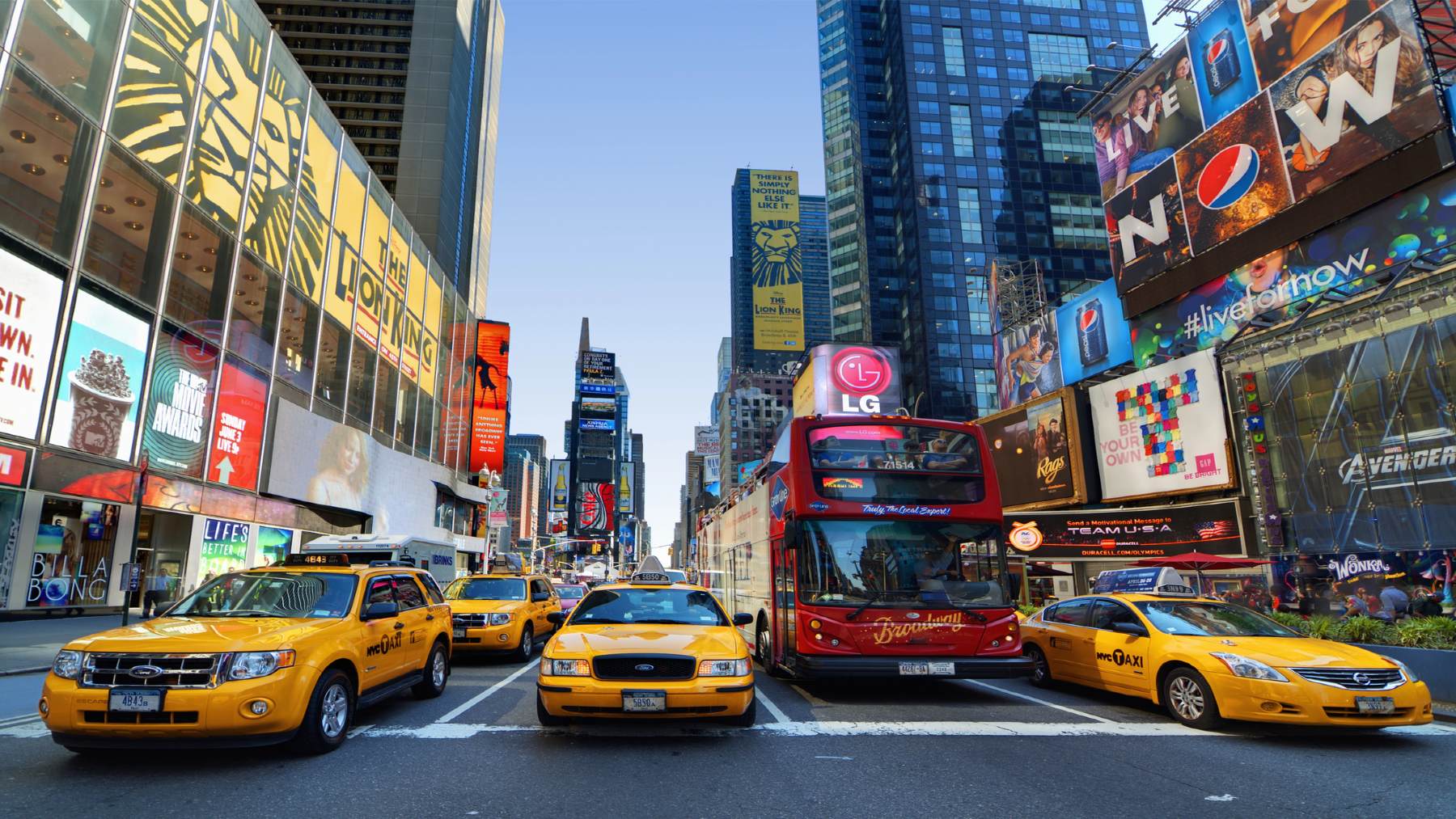Report on German Chancellor’s Migration Remarks and Sustainable Development Goal Implications
1.0 Introduction: Policy Statements and Societal Division
A recent statement by German Chancellor Friedrich Merz regarding the nation’s migration policy has ignited a significant public and political debate. During a visit to Potsdam, the Chancellor linked large-scale deportations to the “cityscape,” a comment widely criticized for its potential to undermine progress towards several Sustainable Development Goals (SDGs), particularly SDG 10 (Reduced Inequalities) and SDG 16 (Peace, Justice and Strong Institutions).
- The Chancellor’s primary stated aim was to combat “illegal immigration.”
- His subsequent remark connecting deportations to the urban environment has been interpreted as targeting diverse populations, thereby challenging the principles of inclusive societies central to the 2030 Agenda for Sustainable Development.
2.0 Political and Public Response in the Context of SDG 16
The remarks have drawn criticism for potentially weakening the social fabric, a core concern of SDG 16, which aims to promote peaceful and inclusive societies. Political opponents and coalition partners have accused the Chancellor of employing divisive rhetoric that echoes far-right narratives.
2.1 Political Criticism
- Opposition Parties: The Greens and the Left Party accused the Chancellor of fomenting prejudice.
- Coalition Partners: The Social Democrats (SPD) warned against creating a discourse that divides people into “us” and “them,” a direct contradiction to the inclusive spirit of the SDGs.
- Intra-Party Dissent: Senior CDU member Dennis Radtke criticized the statement as simplistic and raising unrealistic expectations about the effects of deportation.
2.2 Public Mobilization
Civil society has responded with actions aimed at promoting inclusivity and equality, reflecting the participatory nature of SDG 16.
- Thousands participated in protests organized by groups such as “Together Against the Right.”
- A petition titled “We are the Daughters” garnered nearly 200,000 signatures, explicitly refuting the Chancellor’s statements as racist and manipulative.
3.0 Gender Equality (SDG 5) and Migration Discourse
Chancellor Merz defended his comments by invoking the safety of women and “daughters,” directly intersecting the debate with SDG 5 (Gender Equality). This framing has been contested by activists who argue it instrumentalizes women’s safety to justify discriminatory policies.
- The “We are the Daughters” petition preamble states, “We won’t allow ourselves to be manipulated by your racism, Mr. Merz! You don’t speak for us,” calling instead for a greater focus on the root causes of violence against women.
- Activist Luisa Neubauer articulated this sentiment, stating, “What we are not interested in is being misused as a pretext or justification for statements that were ultimately discriminatory, racist and deeply hurtful.”
4.0 Data, Safety, and Sustainable Cities (SDG 11)
The controversy touches upon SDG 11 (Sustainable Cities and Communities), which seeks to make cities inclusive, safe, and resilient for all inhabitants. The Chancellor’s remarks have been challenged by official crime data and expert analysis.
4.1 Crime Statistics and Expert Analysis
- Official Data: 2024 statistics from the Federal Criminal Police Office show a higher crime rate per 100,000 people among non-German residents, a figure attributed predominantly to young, male, and often traumatized refugees.
- Expert Opinion: Criminologist Susanne Karstedt affirms that Germany is a “very safe country” overall, with crime rates having decreased since the 1980s and 1990s. This suggests that policy discourse should be grounded in comprehensive data to avoid stigmatizing entire communities, a key factor in building safe and sustainable cities under SDG 11.
4.2 Economic Contributions and SDG 8
Despite the controversy, the Chancellor acknowledged that individuals with a migrant background are an “indispensable part of our labor market.” This aligns with SDG 8 (Decent Work and Economic Growth), which recognizes the positive contribution of migrants to inclusive and sustainable economic growth. The debate highlights a tension between security-focused rhetoric and the economic realities of migration.
5.0 Conclusion: Upholding SDG Commitments
The discourse initiated by Chancellor Merz’s comments presents a critical challenge to Germany’s commitment to the Sustainable Development Goals. The incident underscores the responsibility of political leaders to foster social cohesion and evidence-based policymaking. Moving forward, aligning national debates on migration, security, and urban development with the principles of equality (SDG 10), gender justice (SDG 5), inclusive cities (SDG 11), and peaceful societies (SDG 16) remains a paramount task.
Analysis of Sustainable Development Goals in the Article
1. Which SDGs are addressed or connected to the issues highlighted in the article?
-
SDG 5: Gender Equality
- The article connects to this goal through the debate on the safety of women and girls in public spaces. Chancellor Merz specifically invokes the safety of “daughters” to justify his stance, and the counter-petition “We are the Daughters” directly addresses this, calling for a genuine focus on violence against women rather than using it as a “pretext” for discriminatory statements.
-
SDG 8: Decent Work and Economic Growth
- This goal is relevant as the article mentions the economic role of migrants. Despite his critical stance, Merz acknowledges that people with a migrant background are “an indispensable part of our labor market,” touching upon the themes of migrant labor and economic integration.
-
SDG 10: Reduced Inequalities
- This is a central SDG in the article. The entire controversy revolves around comments widely criticized as “racist” and “xenophobic.” The discussion about toughening migration policy, “large-scale deportations,” and the societal division into “‘us’ and ‘them'” directly addresses inequalities based on origin and migration status.
-
SDG 11: Sustainable Cities and Communities
- The article highlights issues of urban safety and public spaces. Merz’s initial comment refers to a “problem in the cityscape,” and he later claims people are “afraid to move around in public spaces.” This directly relates to the goal of making cities and public spaces safe and inclusive for all inhabitants.
-
SDG 16: Peace, Justice and Strong Institutions
- This goal is addressed through the discussion of crime statistics, the rule of law, and discrimination. The article presents official crime data, discusses how laws are applied to migrants (deportations), and highlights the political debate over rhetoric that critics say undermines social cohesion and promotes prejudice, thereby challenging the principles of justice and inclusive societies.
2. What specific targets under those SDGs can be identified based on the article’s content?
-
Target 5.2: Eliminate all forms of violence against all women and girls in the public and private spheres.
- This target is directly implicated by Merz’s statement, “Ask your daughters what I might have meant,” which frames the issue as one of women’s safety from harassment and assault in public. The petition “We are the Daughters” reinforces this by calling for more focus on violence against women.
-
Target 10.3: Ensure equal opportunity and reduce inequalities of outcome, including by eliminating discriminatory laws, policies and practices.
- The criticism that the chancellor’s comments are “racist” and “discriminatory” and that they “fomenting prejudice” directly relates to the need to eliminate discriminatory practices and rhetoric from public officials to ensure equal opportunity and social cohesion.
-
Target 10.7: Facilitate orderly, safe, regular and responsible migration and mobility of people, including through the implementation of planned and well-managed migration policies.
- The article’s focus on Germany’s migration policy, the aim to “combat what he called illegal immigration,” and the plan for “large-scale deportations” are all elements of managing migration, making this target highly relevant.
-
Target 11.7: By 2030, provide universal access to safe, inclusive and accessible, green and public spaces, in particular for women and children.
- This target is central to Merz’s argument that people are “afraid to move around in public spaces” and that there is a “problem in the cityscape,” specifically linking this perceived lack of safety to the presence of migrants.
-
Target 16.b: Promote and enforce non-discriminatory laws and policies for sustainable development.
- The political backlash against Merz’s rhetoric, with critics from multiple parties accusing him of furthering “societal division” and echoing the far-right, highlights the importance of promoting non-discriminatory policies and public discourse.
3. Are there any indicators mentioned or implied in the article that can be used to measure progress towards the identified targets?
-
Crime rates disaggregated by population group:
- The article explicitly provides statistics from the Federal Criminal Police Office for 2024, stating that “for every 100,000 German citizens, 1,878 adults and children over the age of 8 committed a crime. Among non-German residents, however, that figure was 5,091.” This data serves as a direct indicator for measuring crime and justice (SDG 16).
-
Public perception of safety:
- While no specific survey data is given on this point, the entire premise of Merz’s argument implies an indicator related to the feeling of safety. His claim that “many people in Germany and across Europe were nonetheless ‘afraid to move around in public spaces'” points to the importance of measuring the proportion of the population that feels safe, particularly women (relevant to SDG 5 and SDG 11).
-
Public opinion on xenophobia and discrimination:
- The article mentions a direct indicator of public attitudes: “a national survey conducted by the opinion research institute Civey showed… only a third of the 2,500 representative subjects saying Merz’s comment was xenophobic.” This measures public perception of discriminatory rhetoric (relevant to SDG 10 and SDG 16).
-
Civic engagement against discrimination:
- The article provides indicators of public mobilization against perceived racism. It notes that “thousands of people joining groups like Together Against the Right marching through Berlin” and that a petition titled “We are the Daughters” was “signed by nearly 200,000 people.” These numbers serve as a qualitative and quantitative measure of public response to discriminatory discourse.
4. SDGs, Targets, and Indicators Table
| SDGs | Targets | Indicators Identified in the Article |
|---|---|---|
| SDG 5: Gender Equality | 5.2: Eliminate all forms of violence against all women and girls in the public and private spheres. | Implied Indicator: Perception of safety among women and girls in public spaces, as raised by the Chancellor’s comments about “daughters” and the subsequent “We are the Daughters” petition. |
| SDG 10: Reduced Inequalities | 10.7: Facilitate orderly, safe, regular and responsible migration and mobility of people. | Mention of government policy actions such as “large-scale deportations” and efforts to combat “illegal immigration.” |
| SDG 10: Reduced Inequalities | 10.3: Ensure equal opportunity and reduce inequalities of outcome, including by eliminating discriminatory… practices. | Public opinion data from the Civey survey measuring the percentage of people who perceive a politician’s comment as xenophobic (one-third of respondents). |
| SDG 11: Sustainable Cities and Communities | 11.7: Provide universal access to safe, inclusive and accessible… public spaces, in particular for women and children. | Implied Indicator: The claim that many people are “afraid to move around in public spaces,” suggesting a perceived lack of safety in urban environments. |
| SDG 16: Peace, Justice and Strong Institutions | 16.1: Significantly reduce all forms of violence and related death rates everywhere. | Official crime statistics from the Federal Criminal Police Office for 2024, disaggregated by German citizens (1,878 per 100,000) and non-German residents (5,091 per 100,000). |
| SDG 16: Peace, Justice and Strong Institutions | 16.b: Promote and enforce non-discriminatory laws and policies for sustainable development. | Measures of civic action against discrimination: “thousands” of people protesting in marches and nearly 200,000 signatures on a petition against the Chancellor’s “racist” statements. |
Source: dw.com






